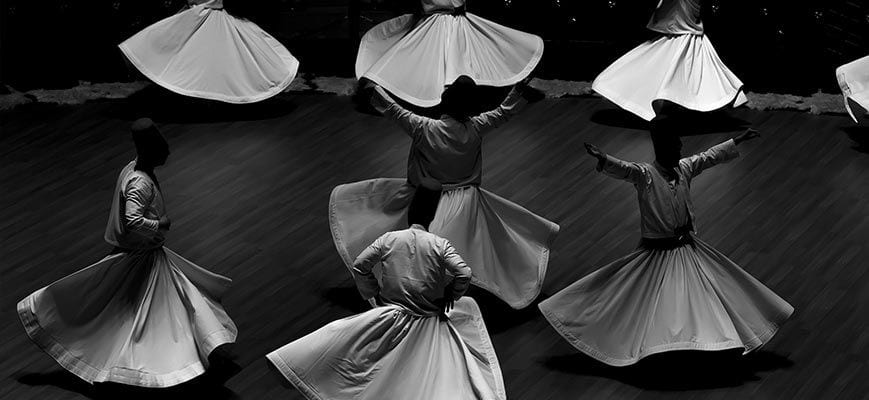No products in the cart.
Information
Ceremony of The Derviches in a Caravansaray
Have you heard of the mystical dances of the gyrovagus dervishes and their dance-meditation ceremony, called Semá?
The gyravago dervishes, also known as Mevlevi, form an order or tariqa founded around the 13th century by the followers of the famous Sufi poet Jalal al-Din Muhammad Rumi. This Muslim order has an ascetic and mystical character and its main ritual ceremony consists of a dance-meditation called Semá.
The Semá is a male dance accompanied by flute and drums music. The dancers turn on themselves with their arms outstretched, until they reach ecstasy, symbolizing “the spiritual ascendancy towards the truth, accompanied by love and totally liberated from the ego”.
If you have always wanted to witness this mystical and impressive spectacle, or simply become curious, this time we offer you the possibility of attending one of the most genuine and original, which has been celebrated since time immemorial in Cappadocia. For this our professional guides will pick you up at the hotel and accompany you to the place of the celebration.
And it is precisely the place of the celebration the other great attraction of this excursion: we propose you to enjoy the mystical ceremony of the dervishes in a “caravansaray”, an ancient inn to lodge caravans of merchants, pilgrims or soldiers, during their long journeys.
This caravansaray is located five kilometers east of Avanos, on the Kayseri-Aksaray road and is known as Sarı Han. It consists of an interior area with five towers and a courtyard. It is believed that Sarı Han had to be built in 1238. It had a Turkish bath and a mesjid on the main door and its external area (except the towers and the portal) covers 2 thousand square meters.
Generally, they were rectangular buildings with a single portal, wide enough to allow the passage of large or heavily laden beasts, such as camels. The inner courtyard was almost always open, and around it were stables, niches and chambers for the merchants, their servants and their merchandise.
The caravansers provided water to travelers and their animals, both for drinking and for ritual washing and ablutions. Some had bathrooms incorporated. They stored fodder and sometimes had stores where guests could stock up, or even sell their merchandise.


